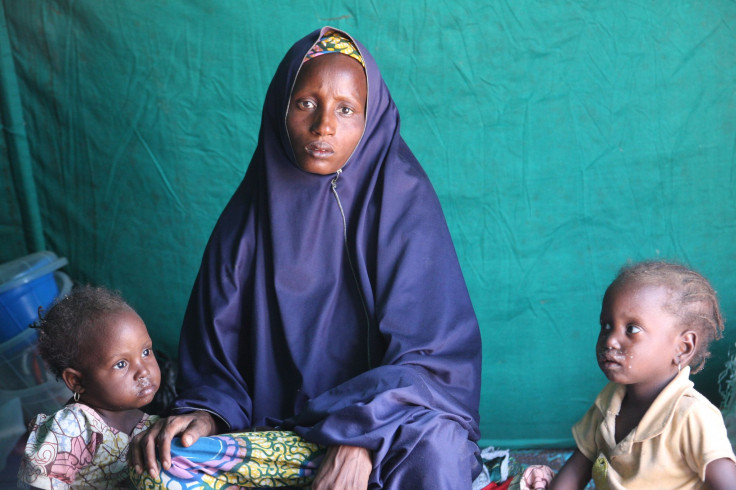Traumatic Childbirth: Women Worldwide Report 'Humiliation And Abuse,' Face Adverse Health Effects

The United Nations’ world leaders have made a dedicated effort to reduce the global maternal mortality ratio since setting their Millennium Development Goals. While the number of maternal deaths has certainly fallen over the past several years, it still sits higher than the targeted ratio of 95, finds a new study published in PLOS Medicine — and in some cases, the persistent ratio stems from humiliation and abuse.
The study isn’t the first to raise awareness of the mistreatment women face during childbirth. The World Health Organization (WHO) released a statement in 2014 noting some health care workers administer “disrespectful and abusive treatment … threaten their rights to life, health, bodily integrity, and freedom from discrimination.” But the present research may be among the first to offer a comprehensive look at these occurrences on a global level.
Researchers analyzed 65 studies conducted in 34 different countries, including the United States, England, Turkey, and Tanzania. The studies, which varied in method, focused on the mistreatment of women during childbirth and were organized into seven categories: physical abuse, sexual abuse, verbal abuse, stigma and discrimination, failure to meet professional standards of care, poor rapport between women and providers, and health system conditions and constraints. Since the data wasn’t conducive to a meta-analysis, researchers instead used the data to identify characteristics and patterns, as well as develop a typology of mistreatment.
Mistreatment varied across countries: In Tanzania, researchers found 19.5 percent of women were mistreated, including “non-dignified care, shouting or scolding, and physical abuse.” And in Nigeria, almost all of the women reported at least one category of mistreatment during childbirth, like “being restrained or tied down during labor,” “being beaten, slapped, or pinched,” with two percent of Nigerian women experience sexual abuse. Physical abuse ranges from rough touch to being tied down and mouth gags, while verbal abuse ranged from harsh and rude language, being scolded, and shamed for sexual activity.
Many women, too, were threatened “with poor quality of care, withholding of treatment, or poor outcomes for their babies as a result of their behavior during childbirth.” This could mean women would be beaten for noncompliant and/or blamed for their own poor health outcomes. This was especially true for women with low income or disease, like HIV.
“These findings illustrate how women’s experiences of childbirth worldwide are marred by mistreatment,” researchers summarized. “Moreover, they indicate that, although the mistreatment of women during delivery in health facilities often occurs at the level of the interaction between women and health care providers, systemic failures at the levels of the health facility and the health system also contribute to its occurrence. Further studies are needed to provide quantitative evidence of the burden of mistreatment of women during delivery and to identify the characteristics of health facilities that facilitate or mitigate the mistreatment of women.”
Women are particularly vulnerable to this disrespectful and abuse treatment during childbirth, the WHO found; “such practices have adverse effects for both maternal and infant health.” For one, women can be coerced into medical procedures they don’t want, like sterilization. Women can also be neglected to a point where both they and their infants sustain life-threatening, avoidable complications.
Psychologist Lorri Craig found traumatic births could cause children to grow up more anxious and aggressive than their “easy-birth counterparts.” And if women are separated from their infants, as is the case in some countries when women can’t afford to continute their care, this negatively impacts early bonding, which factors into childrens' psychological development. One small study from the University of Geneva found disrupting this child-parent relationship has "demonstrable repercussions for the child in preschool and early school-age years ... particular difficulties in the regulation of their own emotion and arousal, particularly when faced with helpless states of mind in their young children or themselves." Moms, too, psychologically suffer, are more stressed, and psychosocial stress has been known to complicate breastfeeding.
But as WHO declares, this is a human rights issue; women, regardless of their income, are entitled to quality care, to being treated with compassion and dignity. This change, as well as achieving the UN’s target mortality ratio, begins with holding health systems accountable for their actions. Clear policies need to be in place regarding women’s rights and general ethical standards.
“Ending disrespect and abuse during childbirth can only be achieved through an inclusive process, involving the participation of women, communities, healthcare providers, managers, health professional training, education and certification bodies, professional associations, governments, health systems stakeholders, researchers, civil society groups and international organizations,” researchers conclude. “We call upon these entities to join in efforts to ensure that disrespect and abuse is consistently identified and reported, and that locally appropriate preventative and therapeutic measures are implemented.”
Source: Bohren M.A, et al. The Mistreatment of Women during Childbirth in Health Facilities Globally: A Mixed-Methods Systematic Review. PLOS Medicine. 2015.



























